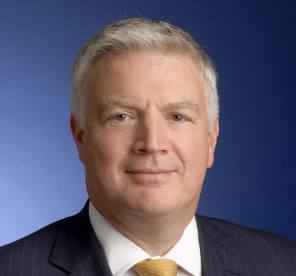

The vast majority of savers are not seeking any regulated advice on their retirement, according to an Aegon survey.
A poll by Aegon found 77 per cent of people are set on going it alone when it comes to planning their retirement.
This is despite 39 per cent confessing to lacking the confidence in their ability to retire comfortably, while a further 38 per cent claimed they had not even thought about their income needs in retirement.
Aegon surveyed 801 working adults in October as part of its bi-annual study of consumer confidence about their retirement.
Steven Cameron, pensions director at Aegon, said: "While some people may be equipped to make their own decisions about their retirement plans, it is quite concerning that so many people are going it alone when many seem to be lacking the confidence and information to tackle retirement planning.
"There are some decisions where advice could make all the difference, and be the factor that determines whether people feel in control of their finances and have a clear idea about what their financial targets are."
Earlier this month a separate study suggested seeking professional help with retirement planning can save households as much as £13,000 over the course of their retirement.
This followed a report published by the International Longevity Centre and Royal London in July that found people who receive financial advice are on average £40,000 better off than those who do not.
John Dunne, paraplanner at Liberate Paraplanning, said people still think advice is too expensive for them and many were not aware of the alternative options out there, such as Pension Wise and The Pension Advisory Service (Tpas).
He said: "The biggest barrier is still that people perceive advice is a costly exercise and that advisers are only for people who have got significant assets.
"We don’t think most people have heard of most of the brands in financial services apart from maybe the biggest ones, as they don’t usually engage with those firms.
"At retirement is probably the only time they would seek that type of help. They are not aware so they go down the simplest route."
Mr Dunne said the regulator, though already active in the field, should be doing more to educate people about the value of financial advice, including running bigger campaigns.
Mr Cameron pointed to the various traps advisers could help savers avoid, such as paying unnecessary income or inheritance tax or running out of money in retirement altogether.
He said: "For some people the perceived price tag that comes with advice immediately rules it out as an option. But people need to realise that there are various options for receiving advice and it might be less expensive than they imagine.
"Some people might have options available to them through their employer and those in their 50s could benefit from some guidance from Pension Wise. Whatever the situation, people shouldn't feel alone when planning for retirement. There are options out there."
Both Tpas and Pension Wise offer free impartial retirement guidance.
Pension Wise was set up by the government to cater specifically for at-retirees who benefit from pension freedoms for the first time.
Meanwhile, provider Prudential has called for a new form of guidance 'with recommendation', which would help those not able to pay for advice but who need more help than the generic guidance providers are currently allowed to give.
carmen.reichman@ft.com



